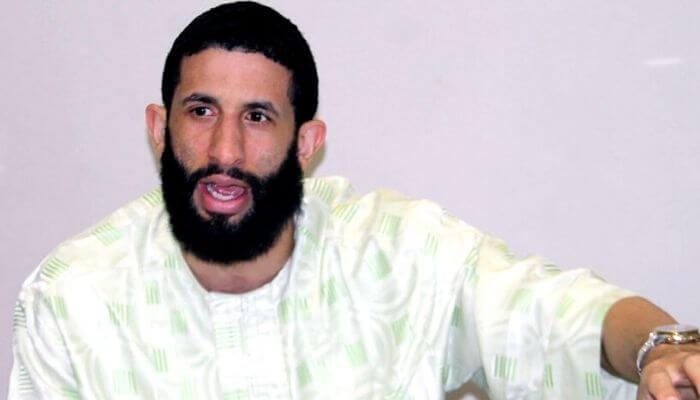The resignation of a top political figure is often an event shrouded in speculation, controversy, and varied interpretations. This was no different in the case of Ajuri Ngelale, who recently tendered his resignation from his position within the administration of President Bola Tinubu.
As Ngelale walks away from the responsibilities he once embraced with enthusiasm, many are left wondering: was this a resignation driven by frustration, or did it stem from a strong stance on principle?
Ajuri Ngelale is not a name unfamiliar to Nigeria’s political observers. As one of Tinubu’s media aides, Ngelale built a reputation as a committed and articulate advocate for the administration’s policies.
He skillfully defended government actions in the media and demonstrated loyalty to the ruling party, the All Progressives Congress (APC). His rise in the public eye was swift, buoyed by his eloquent defense of policies often criticized by the opposition and the general public.
However, just as a saying has it that “public office is not permanent” his resignation has no doubt highlight the fact that political positions and statuses are temporary and subject to change, similar to the concept that in politics there are “no permanent friends, no permanent enemies, but permanent interests.”
This underscores the fluid nature of political relationships and the importance of adaptable strategies. Be that as it may, the reasons for his resignation remain somewhat unclear, though several conjectures have emerged.
There is speculation that Ngelale’s departure may be rooted in frustration with the internal workings of the government. Despite his strong public support for the administration’s policies, it is possible that Ngelale, like many Nigerians, felt disillusioned with the slow pace of reforms and the inability of the government to meet the expectations of the people.
The current economic challenges facing the nation, including inflation, high unemployment, and increasing poverty, may have been a tipping point. His departure could be a reflection of his own frustration with how things were being handled within Tinubu’s government.
Speculations also have it that Ngelale may have resigned due to a conflict with the direction of the APC itself. Having worked closely with the party for years, he may have found himself at odds with certain decisions that did not align with his personal values. Resigning in such a situation would represent an act of principle, showing that he refused to compromise his beliefs even for the sake of his career.
Another possibility is that Ngelale’s resignation was the result of external pressures. Working in such a high-profile position comes with the inevitable challenges of dealing with political adversaries and navigating the demands of powerful figures within the government.
It is possible that Ngelale found himself in a position where continuing in office became untenable due to these forces. If so, his departure could be read as a move made out of necessity rather than genuine frustration or principle.
Politics is often a chess game, and resignations can sometimes be part of a larger strategy. Ngelale may be preparing for a future political move that required stepping away from his current role. By resigning, he positions himself as someone who is not tied down to a particular administration, potentially giving him more flexibility for future engagements in Nigerian politics.
Given the foregoing backdrop, it is germane to opine in this context that the line between frustration and principle is often blurred in political resignations. However, based on Ngelale’s record, it is plausible to assume that his resignation is a mix of both.
On the one hand, the frustration of defending an administration under immense pressure might have taken its toll. On the other hand, his decision to step down may be a strong statement about standing by his convictions, unwilling to be part of a government unable to deliver on its promises.
In fact, Ajuri Ngelale’s resignation is a reflection of deeper undercurrents within Nigeria’s political landscape. It highlights the challenges that political aides and policymakers face in navigating a government rife with contradictions and mounting public dissatisfaction. If key figures like Ngelale are walking away from their positions, it may signify broader discontent within the administration, a signal that all is not well at the helm.
For the general public, Ngelale’s departure might serve as an indication that even those close to power are not immune to the frustrations experienced by the average Nigerian. As the nation continues to grapple with economic challenges, political instability, and a restless populace, the resignation of such a key figure will likely fuel further discussions on the direction in which the country is heading.
READ ALSO:
- President Federation Cup: State Competitions Get Underway
- Simon Named In Ligue 1 Team Of The Week
- Olopade hails Nigerian cricket team for defeating New Zealand at ICC U19
- Sanwo-Olu hosts new Lagos Speaker Meranda, promises cooperation
- Father of arrested gospel singer pleads for son’s release
At this juncture, it will not be a misnomer to opine that whether Ajuri Ngelale resigned out of frustration or principle, his exit marks a significant moment in the unfolding story of President Tinubu’s administration.
It prompts broader questions about the internal dynamics of the government and whether key figures within the ruling party are losing faith in the very system they helped build. As Nigeria faces mounting challenges, it remains to be seen whether other resignations will follow, and if so, what that means for the future of Nigerian politics.


